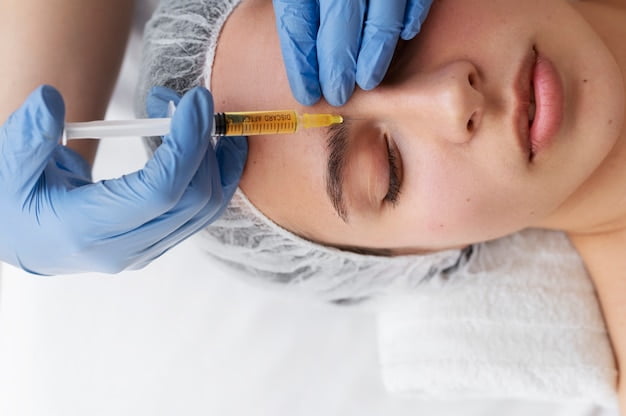
Contents
Introduction
Pregnancy is a time of great joy and anticipation, but it also comes with a host of changes and considerations for expectant mothers. One topic that often arises is the safety of various beauty and skincare treatments during pregnancy. Microneedling, a popular skin rejuvenation procedure, has gained significant attention in recent years. However, before undergoing any treatment during pregnancy, it is essential for expectant mothers to understand the potential risks and benefits. In this article, we will delve into the safety of microneedling during pregnancy and provide expectant mothers with the information they need to make an informed decision.
What is Microneedling?
Microneedling, also known as collagen induction therapy, is a cosmetic procedure that involves using a device with tiny needles to create small punctures in the skin. These micro-injuries stimulate the production of collagen and elastin, which are essential for maintaining the skin’s firmness and elasticity. Microneedling is commonly used to improve the appearance of scars, wrinkles, fine lines, and hyperpigmentation.
Understanding the Potential Risks
While microneedling is generally considered safe for non-pregnant individuals, its safety during pregnancy is still a subject of debate. There is limited scientific research specifically focused on microneedling during pregnancy, which makes it difficult to draw definitive conclusions. However, there are a few potential risks that expectant mothers should consider:
- Increased Sensitivity: Pregnancy can make the skin more sensitive and prone to irritation. Microneedling involves creating tiny punctures in the skin, which may cause discomfort or adverse reactions in pregnant women.
- Infection Risk: Microneedling involves puncturing the skin, which can create openings for bacteria to enter. Pregnant women are generally more susceptible to infections, and any procedure that carries a risk of infection should be approached with caution.
- Absorption of Topical Products: Microneedling is often performed in conjunction with the application of topical products, such as serums or vitamin-rich creams. During pregnancy, the skin may absorb substances more readily, and there is a concern that certain ingredients in these products could potentially harm the developing fetus.
Consulting with a Healthcare Professional
Given the potential risks and the lack of comprehensive research on microneedling during pregnancy, it is crucial for expectant mothers to consult with their healthcare professionals before undergoing any cosmetic procedure. Obstetricians or dermatologists with expertise in pregnancy-related skincare can provide personalized guidance based on an individual’s unique circumstances.
Alternatives to Microneedling
While microneedling may be off-limits during pregnancy, there are alternative skincare options that can address common concerns such as hyperpigmentation, acne, or dryness:
- Gentle Cleansing: Using a mild, pregnancy-safe cleanser can help maintain skin health and minimize the risk of irritation.
- Moisturization: Applying a hydrating moisturizer that is formulated specifically for pregnant women can help combat dryness and maintain skin elasticity.
- Sun Protection: Protecting the skin from harmful UV rays is essential for everyone, including expectant mothers. Using a broad-spectrum sunscreen with a high SPF can help prevent sun damage and hyperpigmentation.
Conclusion
When it comes to microneedling during pregnancy, the existing scientific evidence is limited, and caution is warranted. While microneedling is generally considered safe for non-pregnant individuals, the potential risks and uncertainties during pregnancy make it advisable to avoid the procedure until more research is available. Expectant mothers should prioritize open communication with their healthcare professionals and explore alternative skincare options that are safe for use during pregnancy. Remember, the health and well-being of both the mother and the unborn child should always be the top priority during this special time.



